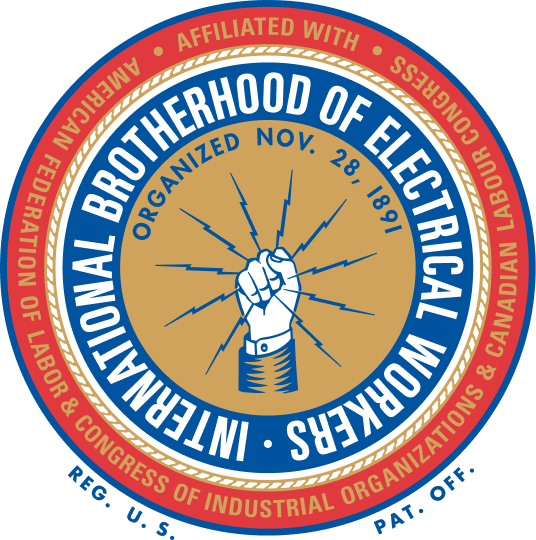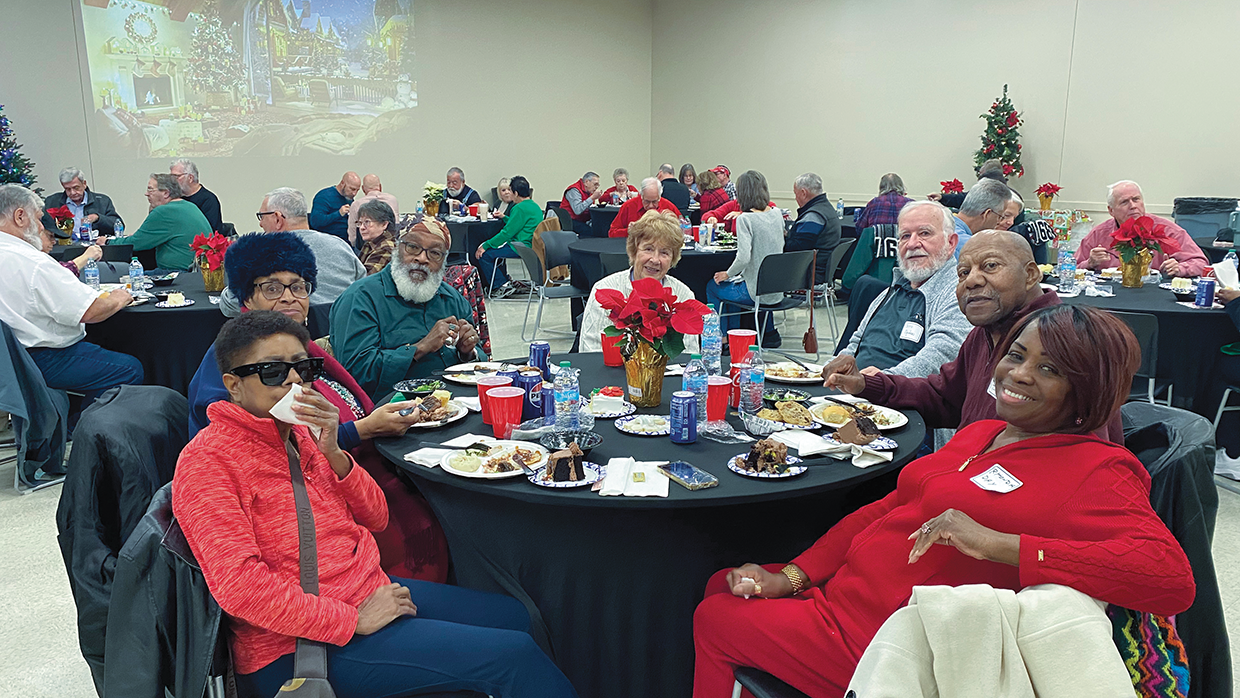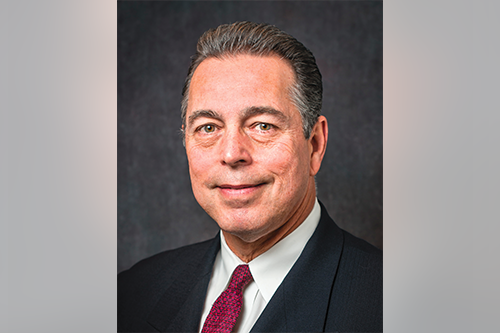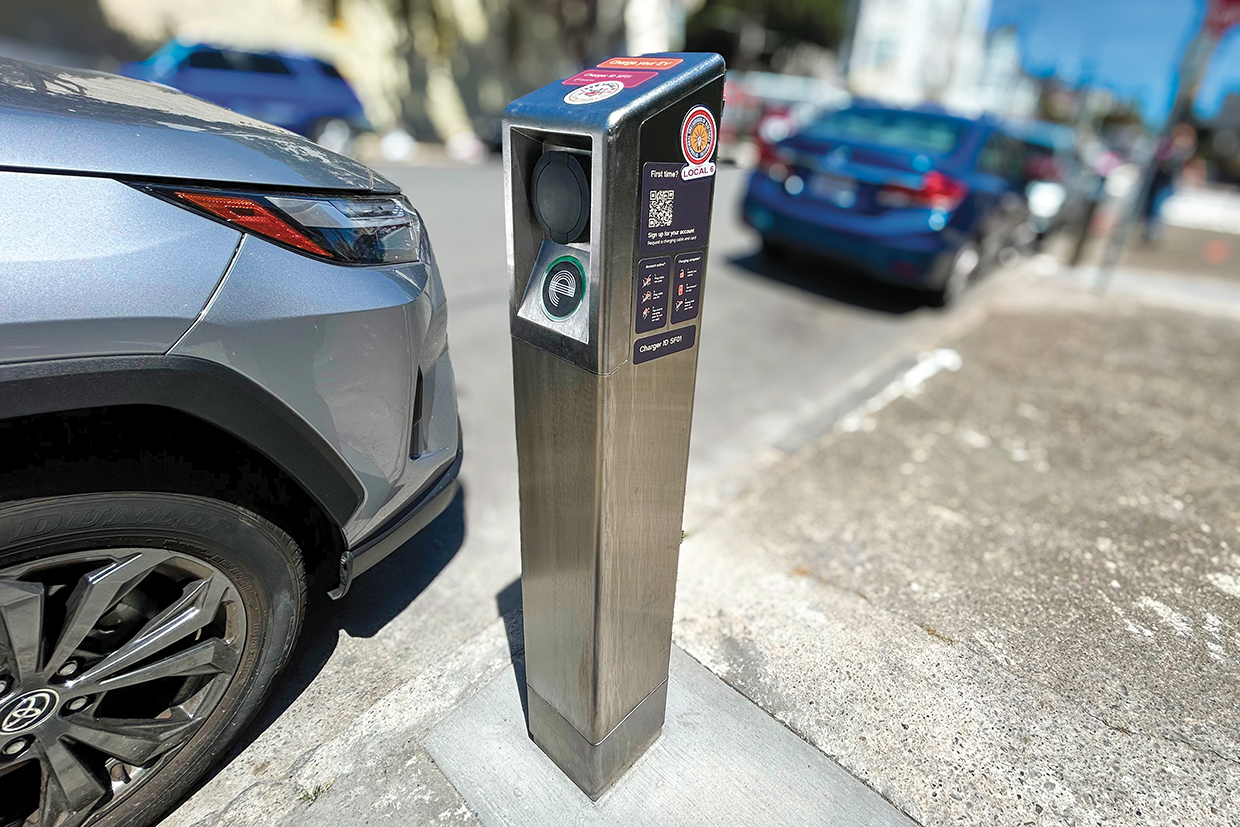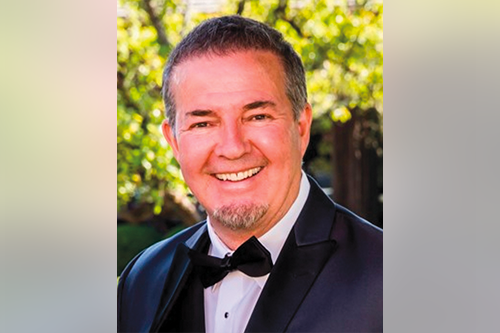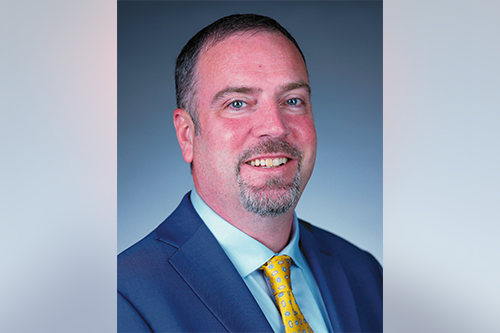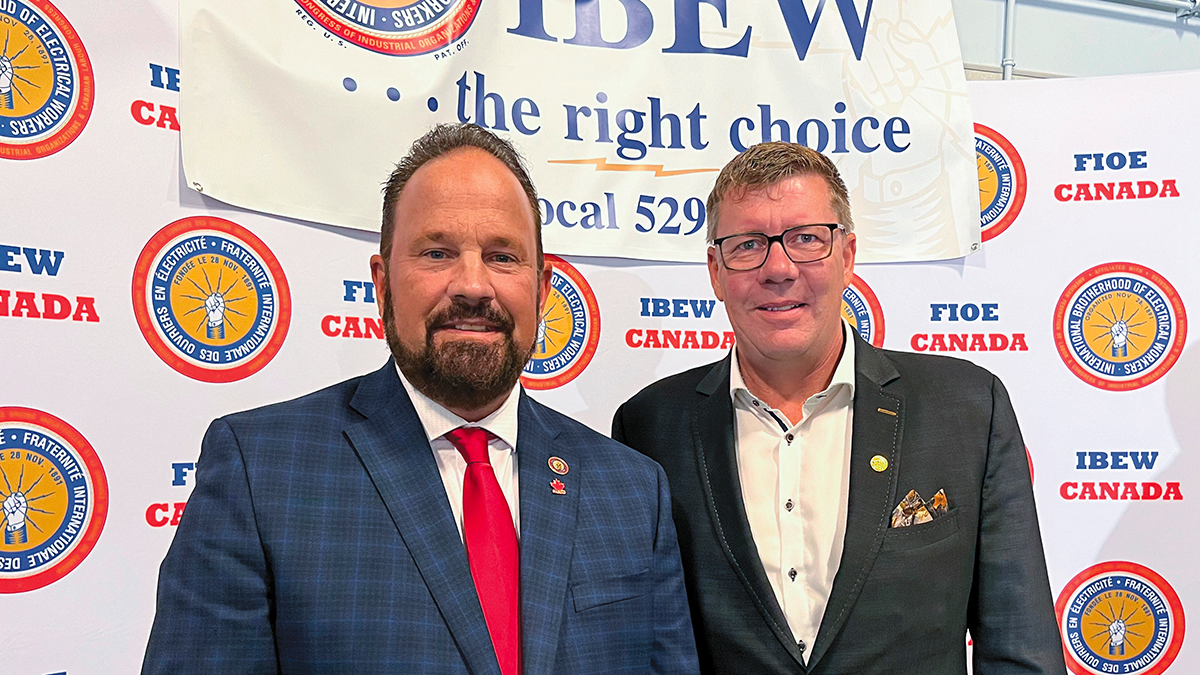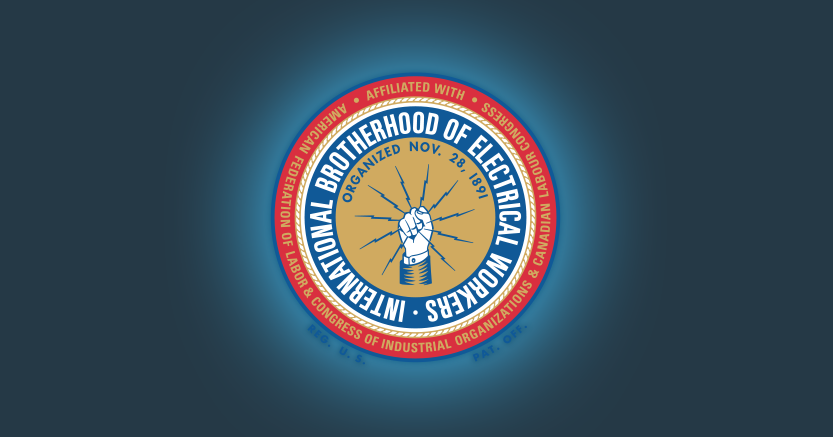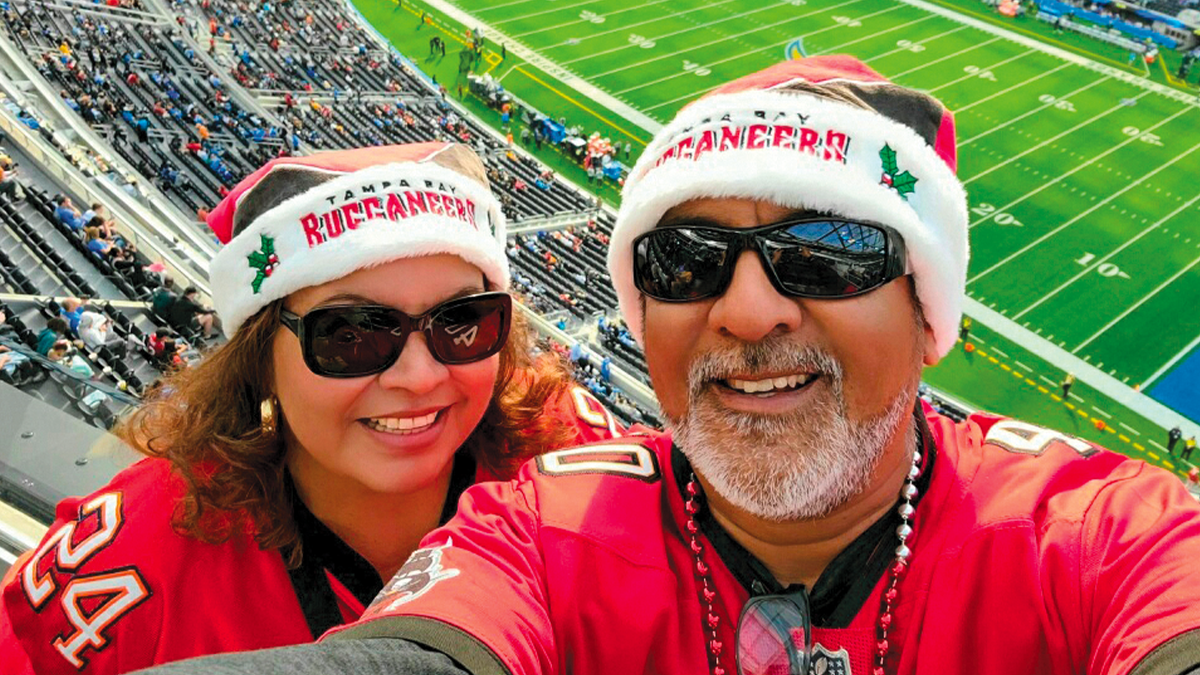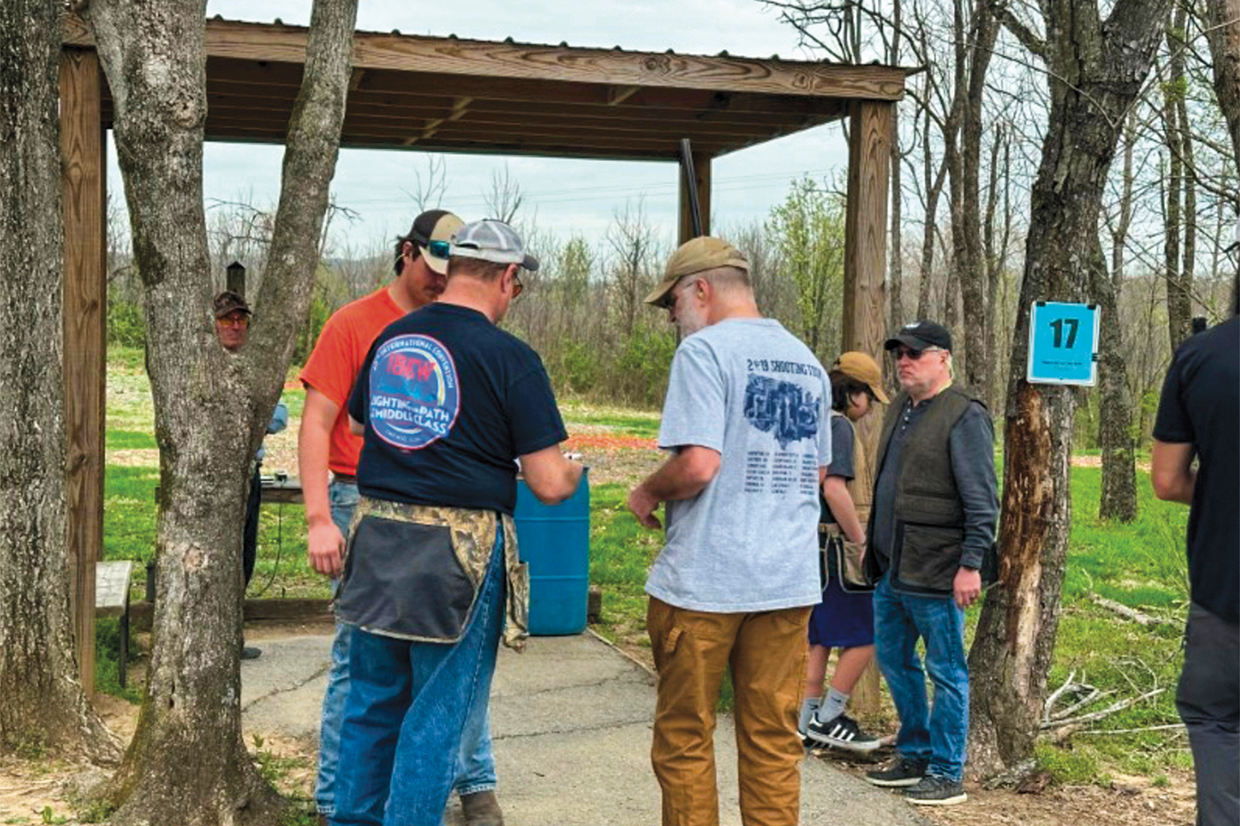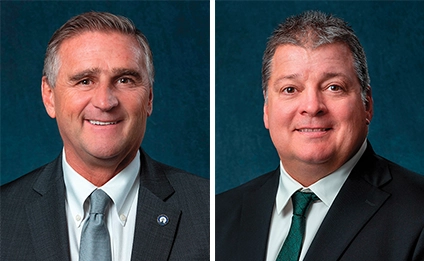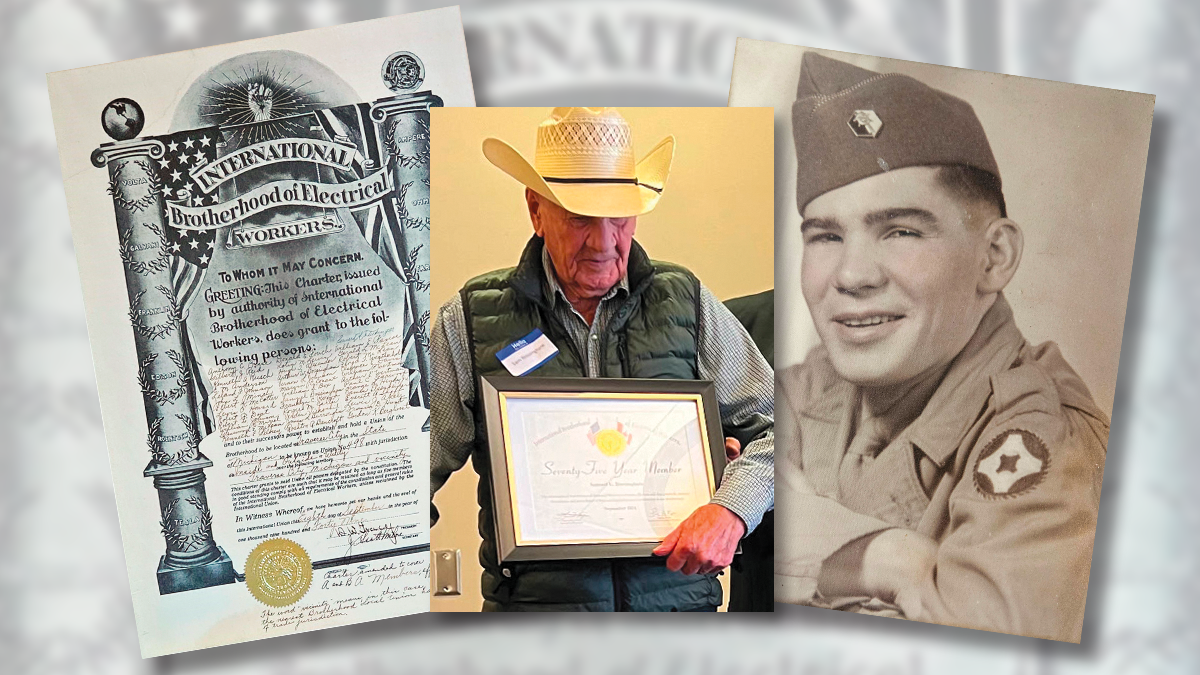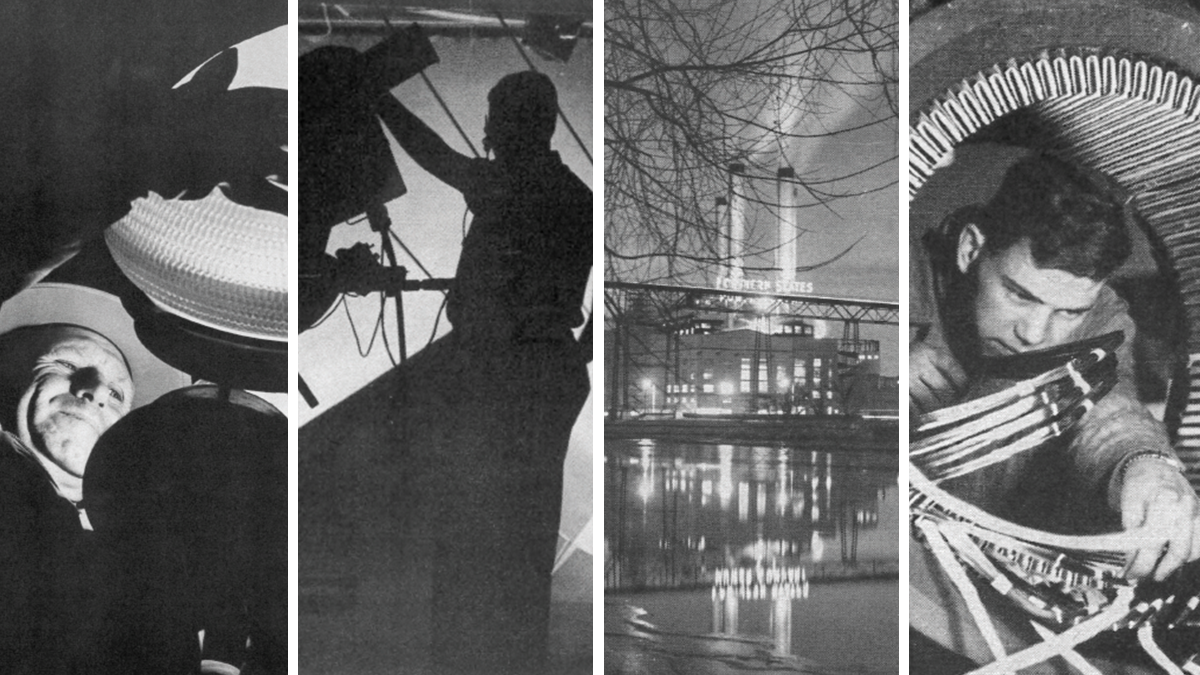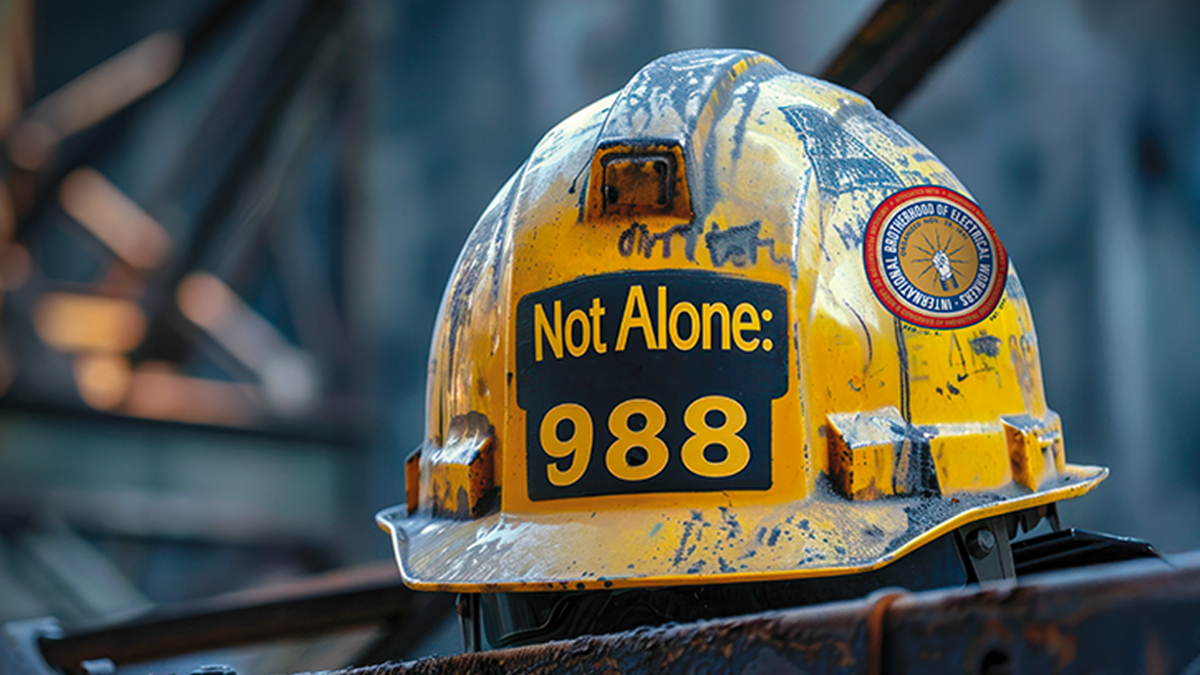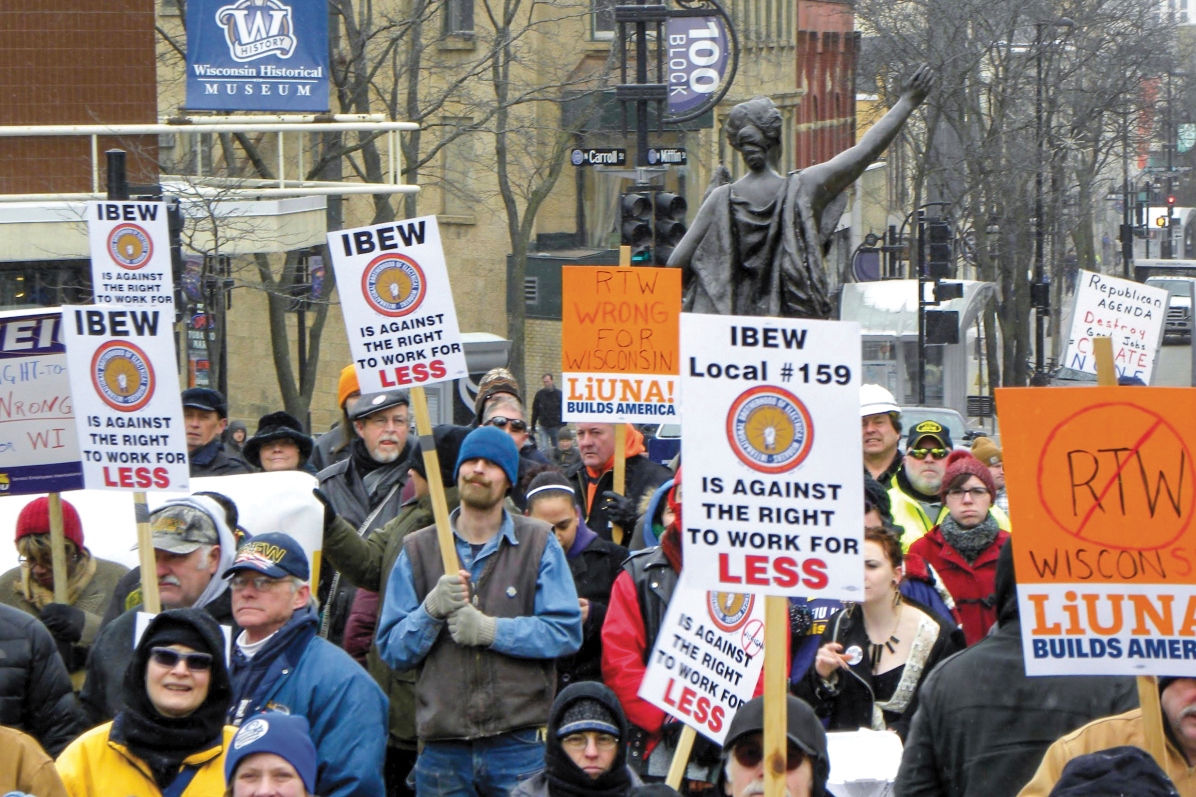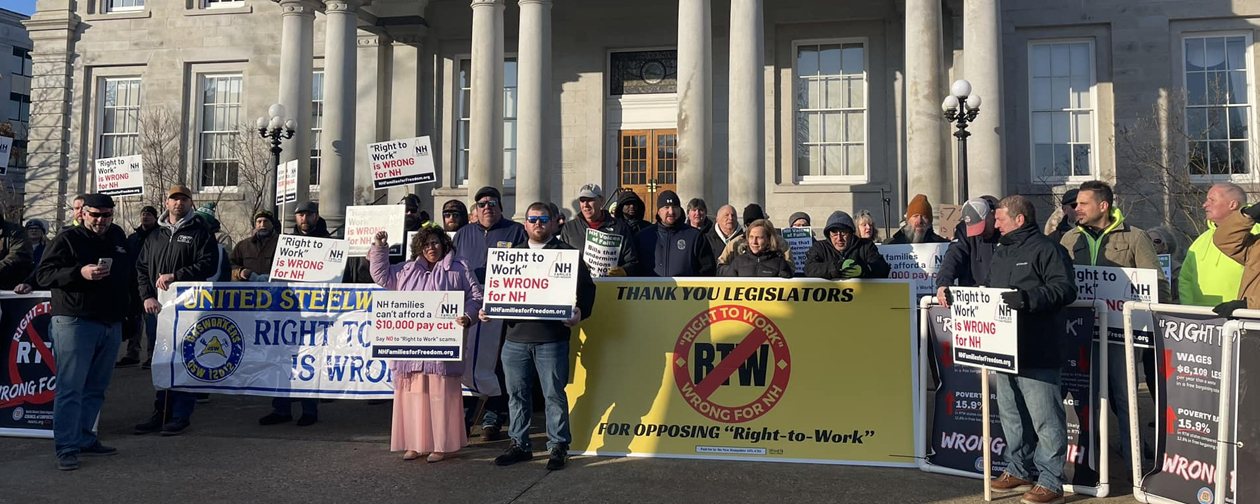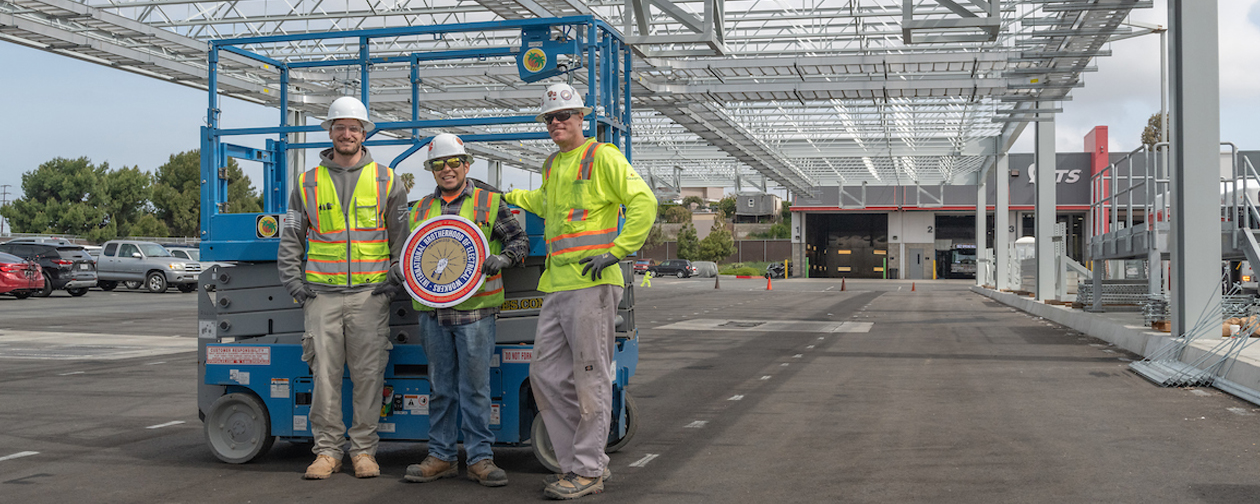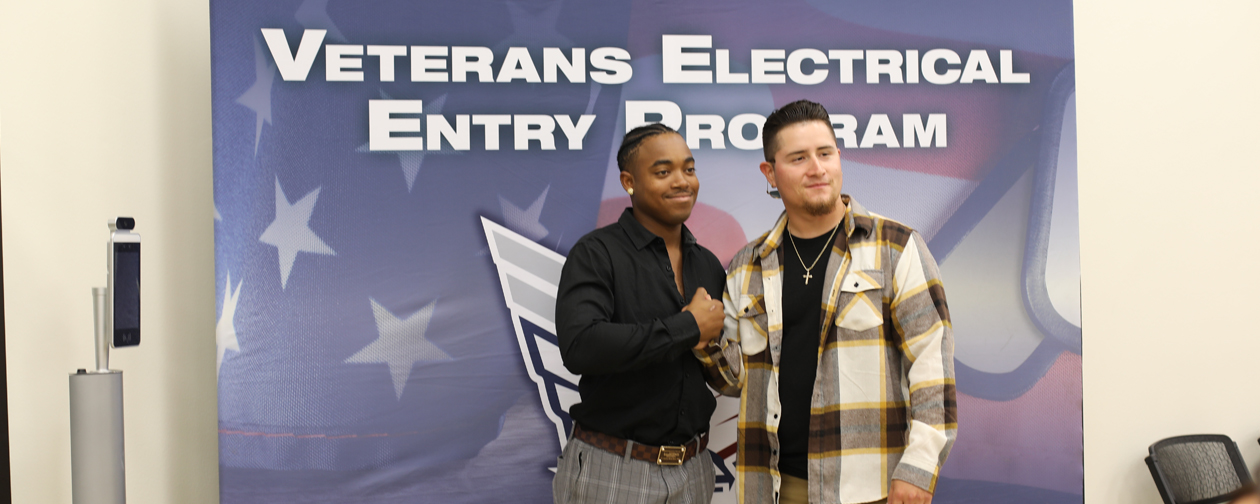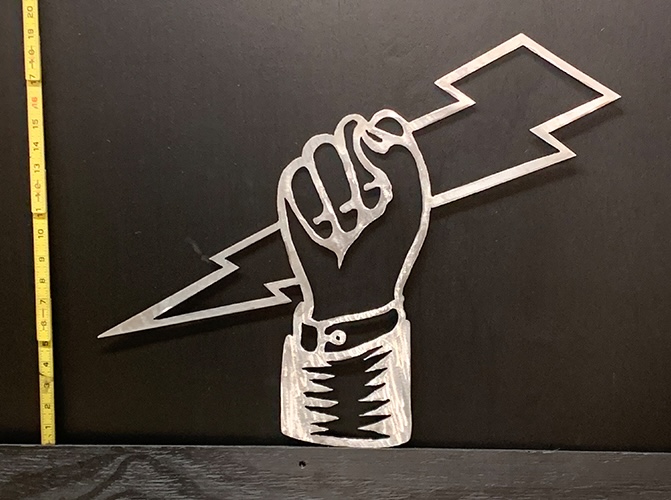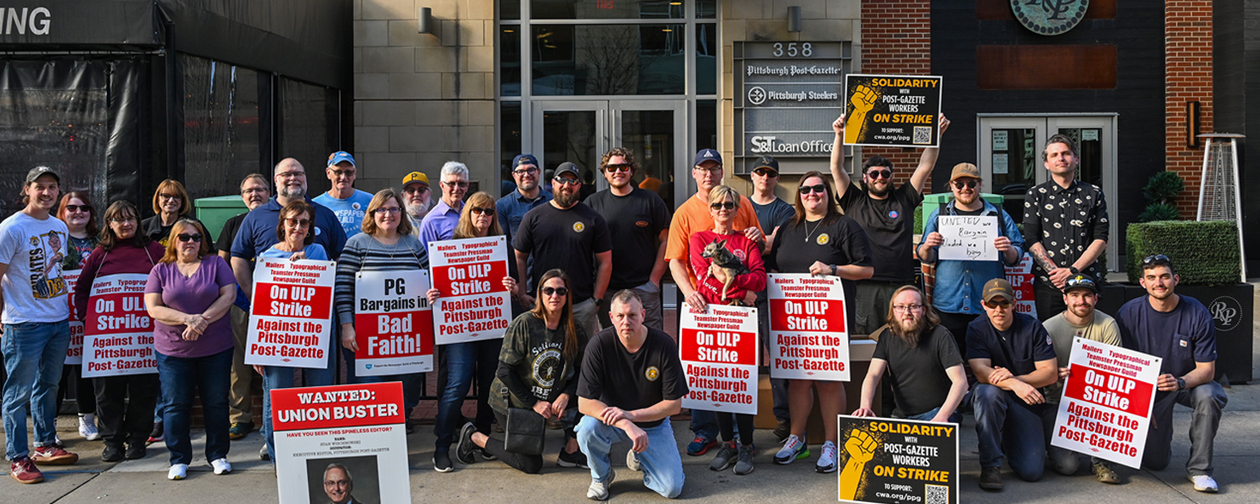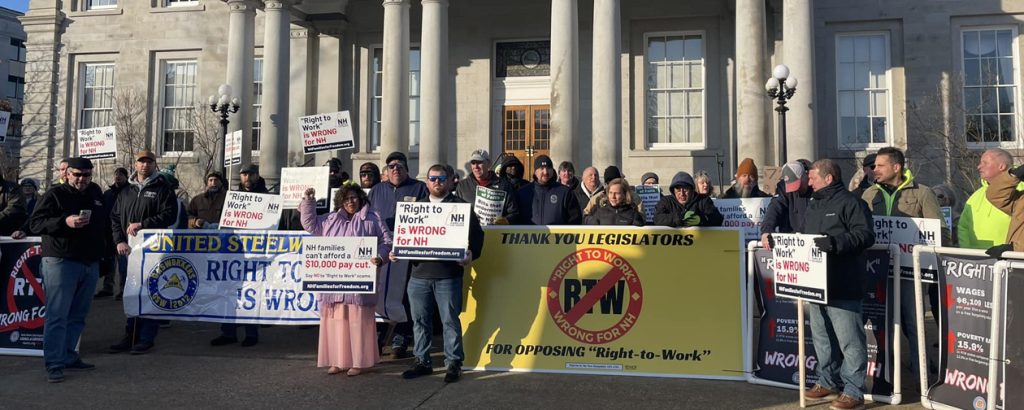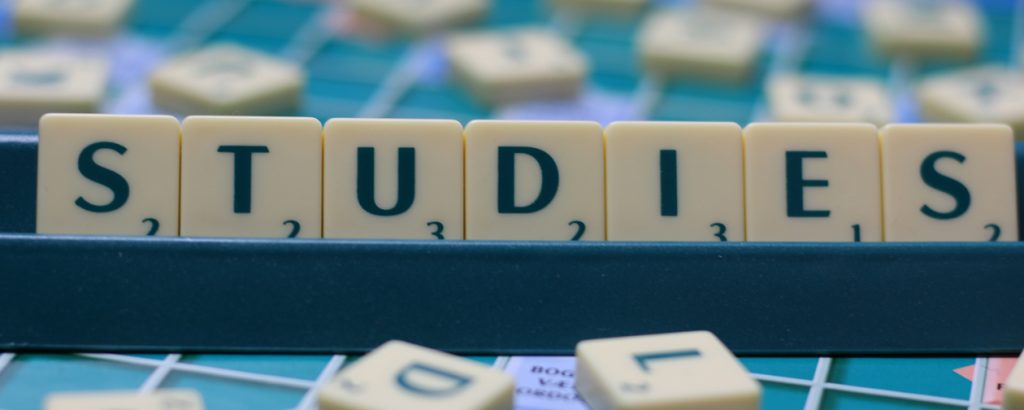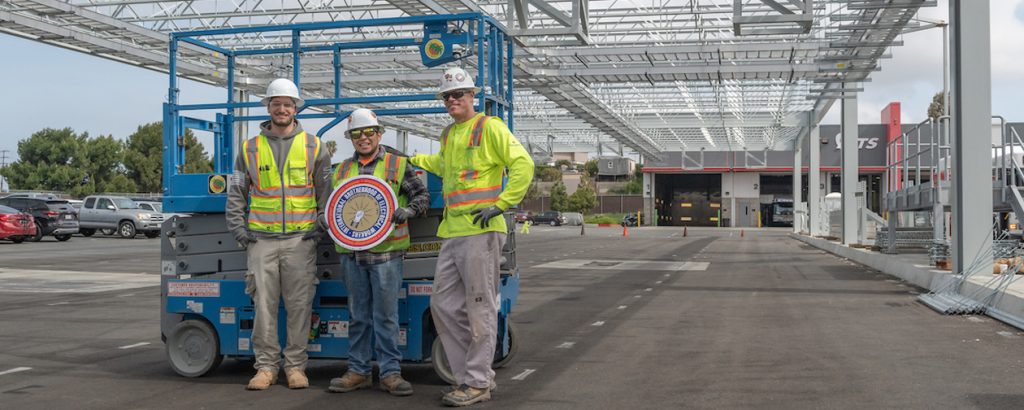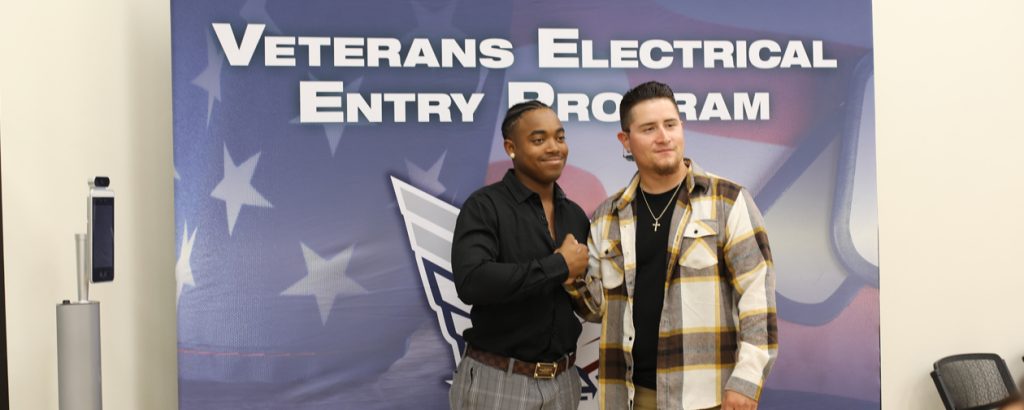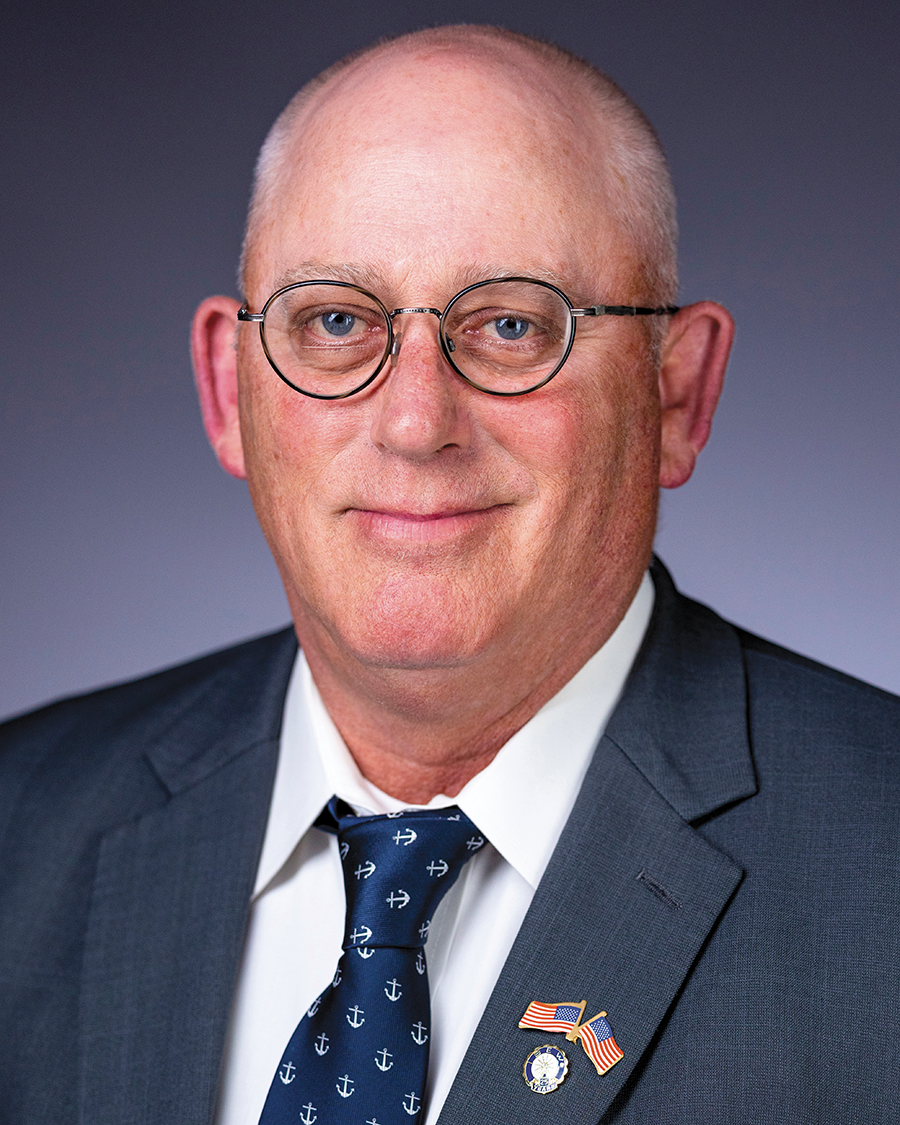
For the first time in its history, the IBEW has an international representative whose entire focus is on veterans’ affairs.
Mike Smith began his duties Nov. 1. Brother Smith served in the U.S. Navy for 10 years, including a stint aboard a guided missile cruiser in Operation Desert Storm, and left the military as a petty officer first class. His father was a Korean War veteran, an uncle is a Vietnam War veteran, and he has three brothers who served in the military.
He was the training director at Geneva, N.Y., Local 840 and vice chair of the Third District Veterans Committee at the time of his appointment. The Third District includes Delaware, New Jersey, New York and Pennsylvania.
He recently talked with The Electrical Worker about how the IBEW is working to improve its outreach to veterans, both current and potential members. Some answers have been lightly edited for clarity.
Electrical Worker: What is the importance of your position for all of our members?
Mike Smith: It lets them know there is someone on payroll whose sole duty is advocacy and outreach for veteran members. Whether it be an issue of someone’s GI Bill or someone not getting the benefits they are entitled to, we’ll get it solved. I’m like a trouble-shooter in that maybe it’s easier for me to figure it out than someone out in the field.
EW: You’ve made it clear that any veteran of the U.S. or Canadian military who is a member can contact you, right?
MS: Absolutely. That was in my speech at the Construction and Maintenance Conference. If a veteran member calls me, and I’ve had some veteran members call, they know me. They know Smitty can help with this, and I’ll do what I can do. [Smith can be reached at 202-728-6096 or [email protected].]
EW: Part of your duties is to work with local unions to ensure that they have someone registered with the Department of Veterans Affairs who certifies a veteran’s on-the-job training hours so he or she is getting the full benefits of the GI Bill during their apprenticeship. How important is that to ensure that a veteran makes a successful transition into the trade?
MS: Very important. I certified those OJT hours at my local. The post-9/11 GI Bill pays a housing allowance that’s based on where you live. You will get a larger allowance when you live in an expensive place like San Francisco as opposed to Geneva, New York, but it gives you some stability during your apprenticeship. A $1,000 book stipend is also a benefit.
EW: Officials from programs like VEEP — the Veterans Electrical Entry Program — and Helmets to Hardhats have data that shows there’s overwhelming interest in veterans in joining the skilled trades and especially the IBEW. Yet there are not nearly enough openings in apprenticeship programs to meet that demand. How do we address that?
MS: VEEP is still not widely accepted throughout the IBEW. A lot of locals reserve their right to hire who they see fit for their local. I respect and understand that.
What we’re trying to offer with the VEEP program is a pre-screening. The successful applicant completes their [pre-apprenticeship] program, whether it’s hybrid or in-person or online. They show they want to be part of the IBEW.
A lot of locals don’t like direct entry. But VEEP graduates upon entering an IBEW/NECA apprenticeship are still under a 2,000-hour probationary period, like any other apprentice. That gives the local the leverage to see if this person works out, veteran or non-veteran. They still have that system of checks and balances. They can still honor the VEEP program and be an accepting local.
EW: Some local unions would point out they have their own veteran outreach programs and they believe they’ve been successful. What do you say to them when they question the importance of VEEP?
MS: I would just say, “Be part of the Brotherhood.” There’s strength in numbers. The more we have, the more strength we’ve got. Right now, we have 63 Veterans Committees out of more than 700 locals in the IBEW. We want to grow.
Those committees are important. I call them my conduits. I can directly talk to a local through their committee. If I email their chairman with a question about their local, they can bring it up to the members themselves. They want to hear from their own people.
EW: How do outside construction and utility work fit into all this?
MS: We have three outside training locations with our partners across the United States, and companies we work with all have expressed a desire to hire more veterans. We’re having some success, but we’re reaching out to programs like VIPER [a veteran-run non-profit founded by an IBEW member that assists service members’ transition to civilian life]. We are discussing a skill bridge pathway so VEEP can get a cohort started in utilities.
EW: How does Helmets to Hardhats — an initiative by 15 building trades unions, including the IBEW — help with outreach to veterans?
MS: They’re kind of like an umbrella organization. Helmets to Hardhats is not a job referral but a job information deal. You register with Helmets to Hardhats, and they reach out to different programs like the IBEW’s VEEP, UA’s Veterans in Piping (VIP) or the sheet metal workers’ SMART Heroes program for opportunities. Our Membership Development Department uses Helmets to Hardhats data to reach out to prospective members. It’s a great organizing tool.
EW: IBEW leaders have long believed that we aren’t just helping veterans by bringing them in, but that veterans are the ideal candidates for membership and careers in the skilled trades. What does that mean to you?
MS: When I started my apprenticeship. I had to get back to the books. I used some of the things I learned in the military on how to study. I would sit there at 4 in the morning at my dining room table with the Labrador retriever at my feet, and I would be studying. The house was quiet because I had three small ones and my wife — they would be all sleeping.
I got that from the military. You have a structure that is laid out for you. You have to do it. There’s no saying no. You just go through with it. I think a lot of the veterans coming in, they know when to get up and they know what is expected of them when they get there. You always have training in the military. You’re always sharpening your skills. That’s what we do in the IBEW.
EW: Is there a message you would like to give to our Canadian members about the importance of veterans there?
MS: My focus on our sister and brother Canadian veterans is just as vigilant as our U.S. veterans. Recently I found two resource guides for members of the Canadian Armed Forces and its veterans and forwarded them to the First District chair for further dissemination throughout the district.
VEEP opportunities are in Canada, as well as Helmets to Hardhats. Congressional and parliamentary acts regarding veterans are ever-changing. I’ll stay on top of it!
